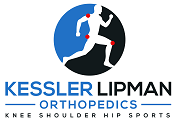Pediatrics - Allergies
Introduction
An allergic reaction occurs when the immune system overreacts to a normally non-threatening substance. There are many types, causes, and symptoms of allergic reactions. Different areas of the body can be affected depending on the allergic trigger. Symptoms can range from mild to severe. Some allergic reactions can be life threatening and require emergency medical attention. Allergy treatments include avoiding what triggers the allergic reaction, medications, and desensitizing shots.Anatomy
Causes
Symptoms
Diagnosis
Treatment
Your child can avoid allergic reactions by avoiding the allergens that trigger them. Your child may not be able to avoid all allergens. Your doctor can recommend medications to relieve symptoms. Allergy shots can make your child's immune system less sensitive to allergens, which can help to reduce symptoms. It may be advisable to carry emergency medication with you to use in case of a severe allergic reaction.Prevention
Am I at Risk
Is My Child at Risk?
Risk factors may increase the likelihood of your child developing allergies, although some children that develop the condition do not have any risk factors. You should tell your doctor about your child’s risk factors and discuss your concerns.
Risk factors for allergies:
_____ Many allergies are inherited. If a child's parents or close relatives have allergies, a child has an increased risk for developing them.
_____ If children have one allergic trigger, they are more likely to have another.
_____ Children may be at risk for allergies if they have certain medical conditions including asthma, eczema, and nasal polyps.
_____ Frequent ear, respiratory, and sinus infections are associated with an increased risk of allergies.
_____ If your child has sensitive skin he or she may have an increased risk for allergies.
Complications
Advancements

Copyright © - iHealthSpot Interactive - www.iHealthSpot.com
This information is intended for educational and informational purposes only. It should not be used in place of an individual consultation or examination or replace the advice of your health care professional and should not be relied upon to determine diagnosis or course of treatment.
The iHealthSpot patient education library was written collaboratively by the iHealthSpot editorial team which includes Senior Medical Authors Dr. Mary Car-Blanchard, OTD/OTR/L and Valerie K. Clark, and the following editorial advisors: Steve Meadows, MD, Ernie F. Soto, DDS, Ronald J. Glatzer, MD, Jonathan Rosenberg, MD, Christopher M. Nolte, MD, David Applebaum, MD, Jonathan M. Tarrash, MD, and Paula Soto, RN/BSN. This content complies with the HONcode standard for trustworthy health information. The library commenced development on September 1, 2005 with the latest update/addition on February 16, 2022. For information on iHealthSpot’s other services including medical website design, visit www.iHealthSpot.com.


